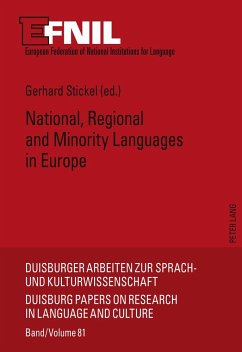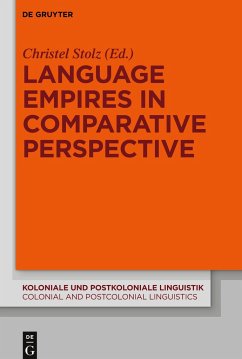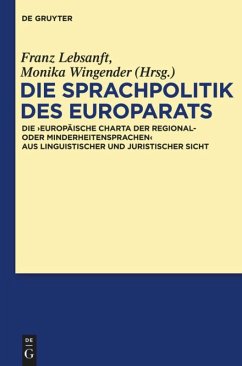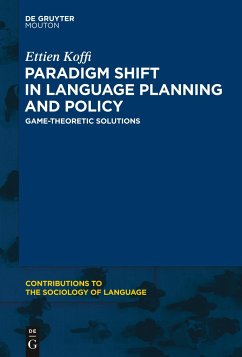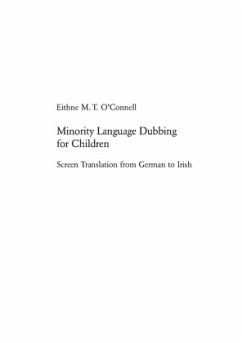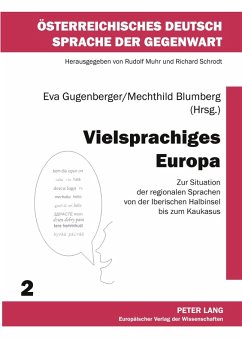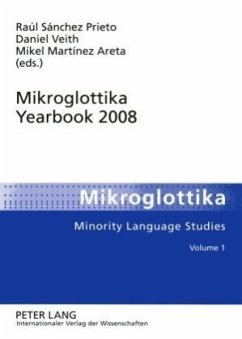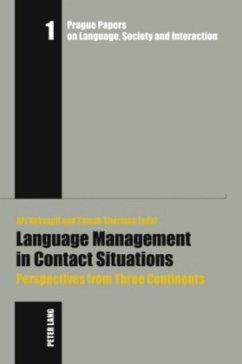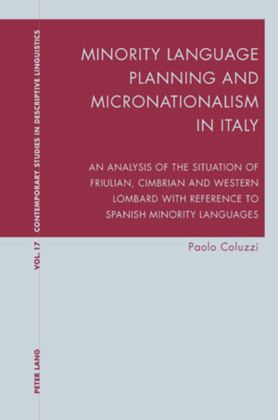
Minority Language Planning and Micronationalism in Italy
An Analysis of the Situation of Friulian, Cimbrian and Western Lombard with Reference to Spanish Minority Languages
Versandkostenfrei!
Versandfertig in 6-10 Tagen
81,70 €
inkl. MwSt.

PAYBACK Punkte
0 °P sammeln!
Issues of language planning and minority nationalism or "micronationalism" are becoming increasingly important in a globalized world. Yet minority language planning in Italy and its relation to minority nationalism has so far attracted relatively limited academic attention, despite the particularly interesting changes that have taken place since Law 482 on the protection of minority languages was passed in 1999. This book presents the situation in Italy in three case studies and compares them with similar cases in Spain: Friulian (compared with Galician), Cimbrian (compared with Aranese) and W...
Issues of language planning and minority nationalism or "micronationalism" are becoming increasingly important in a globalized world. Yet minority language planning in Italy and its relation to minority nationalism has so far attracted relatively limited academic attention, despite the particularly interesting changes that have taken place since Law 482 on the protection of minority languages was passed in 1999. This book presents the situation in Italy in three case studies and compares them with similar cases in Spain: Friulian (compared with Galician), Cimbrian (compared with Aranese) and Western Lombard (compared with Asturian). Analysis of these case studies is preceded by a clear and thorough introduction to terminology, legislation in the two countries, nationalism, the discipline of language planning and bilingual education, both in general terms and with specific reference to the Italian and Spanish cases. This first part introduces and defines the crucial distinction between minority and regional languages, between macro and micronationalism, both in their conservative and progressive strands, and between majority and minority language planning, among other things.



